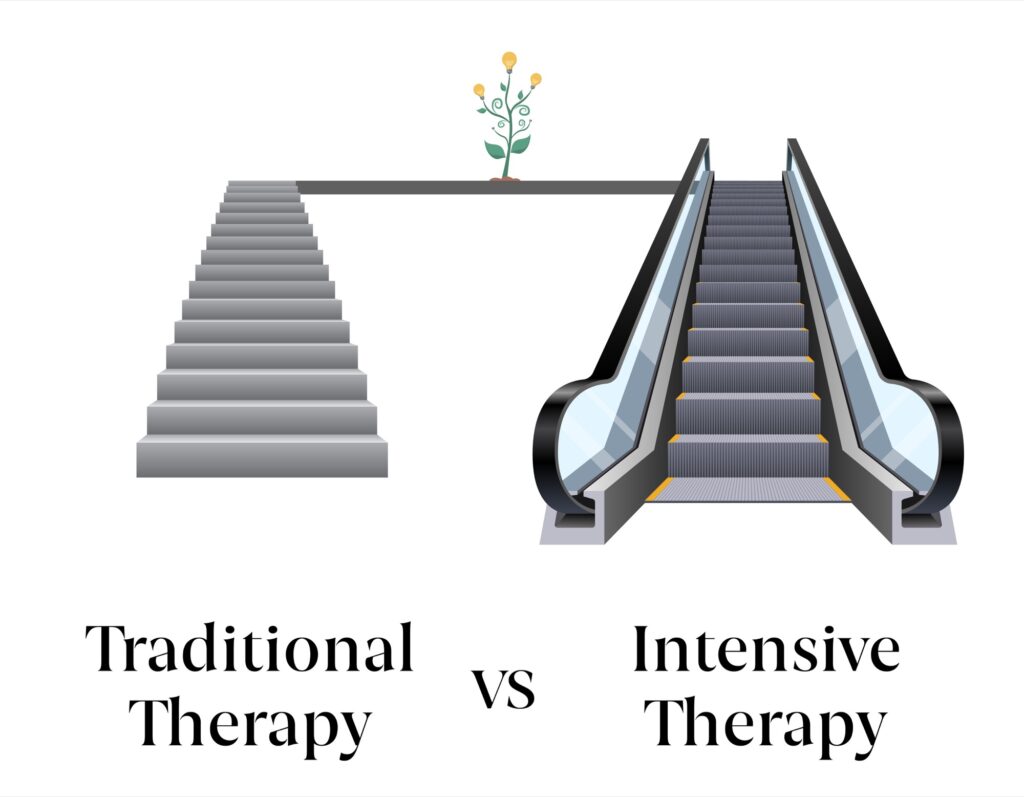Intensive EMDR

EMDR Intensive Therapy
The EMDR Intensive allows you to go through comprehensive healing in as fast as 3 days.
EMDR maximizes our ability to cooperate with the brain’s innate power to heal.
EMDR intensive therapy can help improve your mood and shift your thinking process in the shortest amount of time possible. This helps the brain grow out of its limiting beliefs while avoiding the often triggering processes involved in treating anxiety, depression, dissociative disorders, post-traumatic stress symptoms, and other adverse experiences. It involves utilizing your brain’s neuroplasticity to rewire itself and form new neural connections that eliminates symptoms at their emotional roots.
What Is An EMDR Intensive?
- Resourcing. EMDR maximizes our ability to cooperate with the brain’s innate power to heal
- Resolving relationship difficulties. Attachment-focused EMDR is a great way to address your unmet emotional needs due to abuse or absence of care.
- Processing traumatic memories. EMDR can be used to address both minor and major traumatic life experiences. This is especially helpful with small, compounded traumas that build up over time and cause emotional distress.
Should You Do An EMDR Intensive?
Do you feel like you need therapy to process your trauma and other life experiences but don’t have the time for traditional weekly sessions? An EMDR intensive is an excellent choice for individuals looking for an in-depth, comprehensive psychotherapy program that can be done in as little as three days.
What’s more, research shows that clients with PTSD can effectively tolerate the intensive application of trauma-focused therapy since this allows for faster symptom reduction with even better results. It also reduces the possibility of patients discontinuing their treatment sessions. More information here and here.
The economy is compelling. The EMDR intensive therapy streamlines the treatment period since it does not involve a) checking in every session; b) processing new concerns and crises; c) focusing on coping mechanisms that are not needed after a person heals from trauma; and d) assisting clients with regaining composure at the end of each session, therefore saving you precious time and money. Find out more here.
My approach with EMDR intensive therapy involves looking at what lies underneath the strategies,and updating old narratives about who you are, and what you deserve! Learn more here.
